
Obsessive Compulsive Disorder
NOTE: This web page was originally an e-mail sent to the BehaviorAdvisor.com "B-list". It is presented in that form.

This B-lister e-newletter didn’t arrive on Saturday as expected. Did you find the anxiety building? Were you repeatedly checking your e-mail inbox? Did festering fears that it would never come compel you to log onto the facebook page for BehaviorAdvisor.com? Once there did you make sure that you had given a “thumbs up” to each and every one of the daily classroom management postings from the last two years? Did you find yourself compelled to check and re-check whether each and every daily tip was “liked”? Guess what?! Your compulsive behavior worked!! Those repetitive and ritualistic actions prevented the almost-certain doom of a week without a B-List newsletter. Relax now, let your racing mind slow down, and read about this condition.
*PLEASE BE AWARE that the humor in this and other B-list mailings is never meant to be condescending or ridiculing toward individuals with mental health disorders. Rather these writings are designed to be instructional and relieve a bit of tension by making fun of the behaviors that are exhibited (Yes, there is a difference between making fun of people and making fun of things, so please don’t obsess on it). Mental health disorders are serious conditions deserving of the best of our professional understanding and support.
An Overview of Obsessive Compulsive Disorder
All kids harbor fears, apprehensions, and doubts. Those are part of the human condition. But for some youngsters, those with anxiety disorders, the worrying is non-stop. No matter how much they attempt to rid themselves of the fears of the worst case scenario; no matter how well they recognize the apparently trivial nature of the concern, they hold immense and persistent nervousness.
This week we look at yet another variation on anxiety disorders, OCD: Obsessive-Compulsive Disorder. In this case, the excessive worries compel them to behave in a repetitive, continuous manner.
Youngsters who have OCD experience persistent and recurring frightening thoughts, or images known as “obsessions”. These overwhelming preoccupations relate to something believed to be potentially harmful or dangerous. The obsessions could also be about something viewed by others as being quite trivial or irrational… such as worrying about whether things are "safe", "clean", "in proper order" or "just right." Kids with OCD feel strong urges, “compulsions”, to engage repeatedly in certain actions. They may have a difficult time explaining the reasons for their repetitive rituals, but generally speaking, it helps them to reduce the anxiety that they experience over certain fears. The rituals, if done “correctly” provide a sense of certainty that the bad event has been prevented. There can be no variance from the form and number of the actions in the ritual as the youngster believes that feared outcome will indeed occur if the ritual is stopped too early or completed in the wrong manner. The young person engages in the routine long after it has stopped making sense to him/her. Anxiety trumps reason.
While the ritual may temporarily relieve the anxiety, the obsessive thoughts typically return, requiring another round of the stereotypic actions. This ongoing cycle can reach a point at which hours of the young person’s day in consumed.
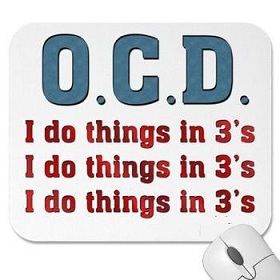
OCD presents itself in many ways. Some of the more common ritualized compulsions are lengthy hand washing, hoarding of objects, keeping things in precise order, and checking the status of something over and over again. A youngster with OCD might also engage in persistent mental acts such a counting, repeating words silently, or constantly reminding oneself to engage in a later action. The obsessions and/or compulsions cause significant distress, often interfering with normal daily routines, academic functioning, social engagement, or personal relationships
The nature of the obsessive thoughts often vary by age, and a youngster’s obsessions sometimes change over time. A child with OCD might hold persistent, continuing thoughts about how harm to self or loved ones is certain to happen at the hands of an intruder unless action is taken. Self and family are protected by checking and rechecking doors and window locks to assure that they are secure. Given the nature of the OCD disorder, anxiety will most likely continue as the child worries that s/he might have accidentally unlocked one of the latches while doing the security check. The compulsive process then re-engages, perhaps many times.
An adolescent with the OCD condition might be terribly afraid that s/he will be infected by germs, debilitating diseases, or contaminated food. To cope with his/her intrusive feelings, s/he engages in a repetitive safety ritual. (excessive hand washing done in a certain manner, spraying surfaces and room air with disinfectant, cleaning household surfaces, etc.)
 OCD Man & Anxiety Girl: Eradicating chaos & Bringing order to the universe.
OCD Man & Anxiety Girl: Eradicating chaos & Bringing order to the universe.
What Are the Symptoms of OCD?
The obsessive and compulsive symptoms of OCD vary between youngsters, but here are some of the commonly witnessed ones:
Common fears:
Common compulsions:
What Causes OCD?
OCD usually begins in adolescence or young adulthood, although children can also develop the condition. It affects about 1 in 200 kids. It occurs about equally in the genders, and is present in all races and socioeconomic backgrounds
.
The exact etiology of OCD is not fully known or understood, but research indicates that a combination of biological and environmental factors might be involved. While a youngster may develop OCD with no prior family occurrence of the condition, the disorder does tend to run in families.
Research finds that low levels of a neurotransmitter, serotonin, is associated with the development of Obsessive Compulsive Disorder. This serotonin imbalance has a negative effect on a part of the brain associated with planning and decision making. It seems that this serotonin imbalance can be passed down from parents to their children. In essence, to some extent OCD or a tendency to it, may be inherited.
Some cases of OCD develop or worsen with a streptococcal bacterial infection.
It appears as if environmental stressors can also trigger the condition in individuals with a predisposition (tendency) toward developing OCD, or worsen it if it has already surfaced. These factors include:
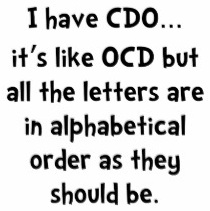
How is OCD Treated?
For most kids, OCD can be successfully managed with medications, cognitive behavioral therapy, or better yet, a combination of the two.
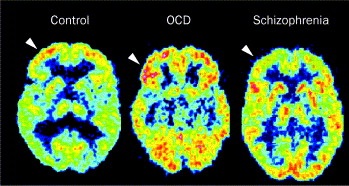
As for the meds, Serotonin reuptake inhibitors (SSRI’s) are commonly prescribed. They prevent the re-absorption of serotonin by nerve cells, thus breaking the recycling of that body chemical. Antibiotic therapy might be indicted in OCD cases brought on by streptococcal infections.
With ongoing treatment, most youngsters with OCD acquire relief from the disorder and are able return to normal or near-normal daily living.
Some countries already provide mental health coverage for individuals in need. Health insurers in the United States will be required to provide mental health coverage starting in 2014.
http://www.nytimes.com/2013/02/21/health/new-federal-rule-requires-insurers-to-offer-mental-health-coverage.html
Here is this week's informational show! In this powerpoint presentation, we come to know Grace Lynn, a 9 year old with OCD. We learn of her life and symptoms, and see how they relate to the diagnostic critieria for the condition. The slide show was developed by one of the wonderful graduate students in my behavior disorders teacher training program. (Thanks, Stacy!)
What Can We Do To Help?
Kids with OCD may be aware that their obsessions and compulsions are senseless or unrealistic, but they unable to stop the distressing mental intrusions. Adding to the anxiety involved in OCD is the shame and embarrassment that many kids feel about their obsessive actions. They realize that their fears are out of proportion, and fear they're irreparably “crazy”. Understandably, kids with OCD can often be hesitant to talk about their thoughts and behaviors. Being accepting and understanding can facilitate the comfortable communication that allows us to increase the youngster’s understanding of the problem. Family members may be baffled by the condition, needing education and support in order to optimally assist their loved one with OCD.
GENETIC TESTING KITS Mail a swab of DNA for analysis. A prescribed dietary and health plan recommendation is returned to you in order to help minimize the chances of those conditions emerging. Click here and enter "Gene SNP"
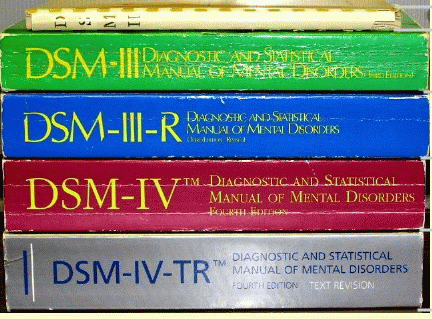
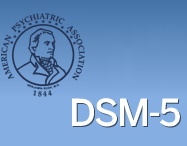
The Educators' & Parents'(& others) Guide to the Diagnostic & Statistical Manual (DSM) of the American Psychiatric Association
Some kids in your class have DSM diagnoses/labels. Perhaps your child at home has been diagnosed with a mental health disorder. To serve them well, you need to know about the DSM, it's history & purpose, and your youngsters' diagnoses. You'll get that information here.
A 5-part, 45-minute, humorous & insightful video podcast overview of the DSM.
Click here to view excerpts from the podcasts at Youtube.com |
End note
I hope that I’m not going to create too much anxiety by telling you that there will be no weekly newsletter next week. I’m taking my family on a well-deserved holiday. Although, if all the daily classroom management tips on the BehaviorAdvisor.com facebook site were “liked” and rechecked many times, perhaps that awful event could be avoided. Here’s the link: http://www.facebook.com/pages/BehaviorAdvisorcom/169917999725198?fref=ts
or you can search for BehaviorAdvisor.com while logged onto facebook.
To sign up for the B-List newsletter mailings, go to: http://behavioradvisor.com/12001 and enter your e-mail address.
![]() Does this puppy have a compulsive behavior?
Does this puppy have a compulsive behavior?
Author: Tom McIntyre, Ph.D. at DoctorMac@BehaviorAdvisor.com
